Personal Papers
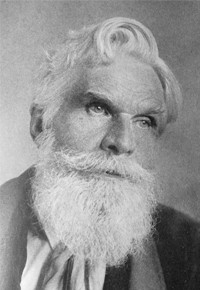
Havelock Ellis Letters
English physician and writer Havelock Ellis (1859-1939), one of the most prominent early sexologists, introduced English-speaking audiences at the turn of the twentieth century to frank, medically informed, relatively non-judgmental discussions of human sexuality. His seven volume series Studies in the Psychology of Sex, published between 1897 and 1928, documented a broad sweep of sexual and gender variation, including groundbreaking discussions of homosexuality, masturbation, birth control, sadomasochism, fetishes, and other topics. This small collection contains letters written to Ellis between 1894 and 1939 and some drafts of his replies. Correspondents include André Breton, Julian Huxley, Bronislaw Malinowski, Henry Salt, and Marie Stopes; subjects range from Ellis’s work on sexuality, birth control, and pornography to pacifism and social reform.
See also: additional correspondence from Havelock Ellis can be found in several other RBML archival collections, including the Stephen Haweis Papers, Westgate Press Records, Paul R. Reynolds Records, Arthur and Rhoda Symons Correspondence and Manuscripts, William Morris Colles Papers, and Randolph Silliman Bourne Papers.

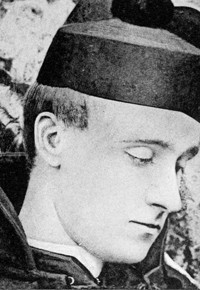
Frederick Rolfe (Baron Corvo) Collections
The English writer Frederick Rolfe (1860-1913), known by the pen name Baron Corvo, authored autobiographical novels and stories, pursued photography and painting, and was an inveterate correspondent. Catholic, homosexual, and eccentric, he died penniless in Venice, but became something of a cult figure after his death. The RMBL holds five collections including materials by and about Corvo: the Columbia University Collection of Frederick Rolfe Papers (1895-1986), a collection of his correspondence with a publisher and documents relating to collectors and biographers; the David Roth Martyr Worthy Collection (1892-1973), including manuscripts and typescripts, correspondence, and tree trunk carvings by Corvo; and the Stuart B. Schimmel Collection (1892-1980), including letters, bookplates, photographs, and secondary materials from fans and collectors; the Miriam J. Benkovitz Papers (1954-1986), including drafts, manuscripts, and proofs relating to a biography she authored of Corvo, as well as copies of some of Corvo's correspondence; and the Jack Harris Samuels English and American Literary Manuscripts and Letters Collection (1663-1964), which includes several original Corvo manuscripts.

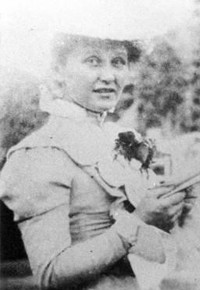
Cora Crane Papers
Notorious society madam, socialite, and entrepreneur Cora Crane (1865 or 1866-1910) ran The Court, a famous brothel in Jacksonville, Florida, from 1901 until her death in 1910. Her papers (1886-1910) center around correspondence and financial records relating to her operation of the brothel, offering insight into the economics of sex work in the early twentieth century. The collection also includes a manuscript by journalist Harold Frederic, the last known signature of novelist Stephen Crane (her common law husband from 1896-1900), and other business documents.

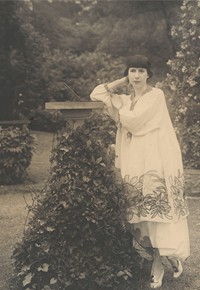
Florine Stettheimer Papers
The paintings, drawings, and designs of Florine Stettheimer (1871-1944) reflect a distinctive colorful, feminine style that challenged artistic conventions of the male gaze and engaged controversial themes of race, gender, and sexuality. The salons that she and her sisters hosted in the Upper West Side home they shared attracted key figures in avant-garde art and literature as well as numerous openly gay, bisexual, and lesbian participants. Her papers (1920-1940) include correspondence, sketches for costume and set designs, drawings, scrapbooks, photographs, exhibition catalogues, clippings, and puppet figurines built for her productions of Pocahontas and Four Saints in Three Acts. Columbia also holds over 65 paintings, drawings, and decorative objects from her set designs in the Stettheimer Collection in Art Properties, the largest extant collection of Stettheimer’s work.

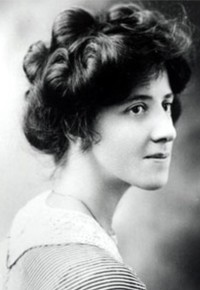
Marie Carmichael Stopes Letters
British author and activist Marie Stopes (1880-1958) campaigned for women’s rights, birth control, and eugenics. In addition to her substantial scientific contributions as a paleobotanist, she wrote Married Love, a controversial sex education manual that included information on contraception, authored poems and plays dealing with sexuality, and helped to found the first birth control clinic in Britain in 1921. The collection consists of a box of letters written between 1916 and 1958 by Stopes to author Mollie Stanley-Wrench and to her daughter, playwright and poet Margaret Stanley-Wrench, discussing literature, medicine, and the writings of all three women.

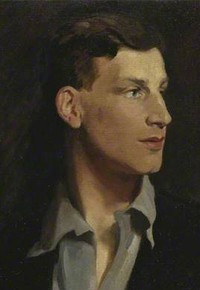
Siegfried Sassoon Papers
After volunteering as a British Army soldier in 1914, Siegfried Sassoon (1886-1967) faced the horror of combat in the trenches firsthand, leading him to publicly oppose the war and to pen jarring, evocative poetry describing the reality of combat. In addition to his prolific work as a poet, he worked as an editor and authored several successful autobiographical novels and volumes of memoir. The collection includes Sassoon’s correspondence with a wide range of friends, family, and literary figures, including fellow same-sex loving writers E.M. Forster, Robbie Ross, and Sir Hugh Walpole, as well as notebooks, drawings, and manuscripts and drafts of his autobiographical writings, poems, and short stories.

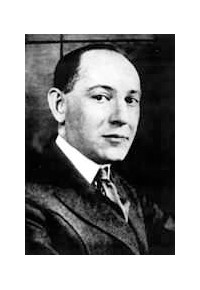
Samuel Loveman Correspondence
Poet and bookseller Samuel Loveman (1887-1976) moved from Ohio to New York City in the 1920s, living as an openly gay man and befriending a variety of prominent literary figures. Along with his partner he operated the Bodley Bookshop in Manhattan and published works of poetry and correspondence with Ambrose Bierce. This small collection includes letters he received between 1911 and 1976, touching on sexuality, relationships, literature, and the antiquarian book trade.
See also: the Columbia Oral History Collection includes an oral history interview with Samuel Loveman from the Hart Crane Project.

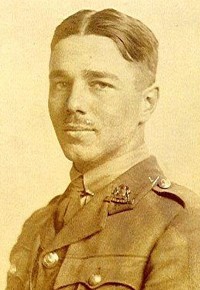
Wilfred Owen Papers
Wilfred Owen (1893-1918) became one of the most famous war poets in modern literature through his vivid, unsentimental descriptions of the horrors of trench and gas warfare in “Anthem for Doomed Youth” and other renowned poems. He met Siegfried Sassoon, who would become a close friend and literary influence, at a war hospital in Edinburgh in 1917. He then returned to the front, where he wrote some of his most powerful verses and earned a Military Cross award for bravery before being killed in action in late 1918. The collection (1917-1965) includes letters Owen wrote to Sassoon during the last year of his life, letters between Sassoon and members of Owen’s family and scholars studying his work, and three manuscripts of Owen’s poetry, including the homoerotic “Shadwell Stair.”

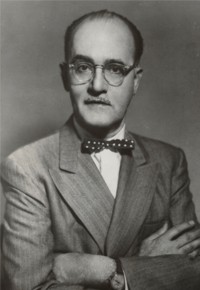
Samuel Roth Collection
Writer and publisher Samuel Roth (1893-1974) became (in)famous for distributing sexually explicit literature and fighting against censorship. He operated bookstores in New York and mail order business featuring translations and unauthorized editions of banned novels as well as pornography and controversial nonfiction, and was sent to prison several times for violating obscenity laws. As the plaintiff in the pivotal Supreme Court case Roth v. United States (1957) he helped to redefine the judicial test for obscenity in relation to the First Amendment. The collection (1907-1994, bulk 1910-1979) includes publishing and business files, court records, correspondence with a wide variety of prominent modernist literary figures, and his own poems, plays, and fiction writings.

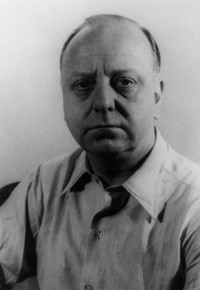
Virgil Thomson Papers
Virgil Thomson (1896-1989), one of the preeminent composers and critics of his generation, helped forge a distinctly “American” classical music style. He collaborated with Gertrude Stein on Four Saints in Three Acts (1934) and The Mother of Us All (1947); composed numerous symphonies, ballets, operas, and film scores; served as music critic for the New York Herald Tribune; and mentored a generation of American composers, including Ned Rorem and Paul Bowles. Along with his partner and collaborator, the painter Maurice Grosser, he lived for decades at the Chelsea Hotel, where they hosted a salon that drew prominent gay literary, artistic, and musical figures including Tennessee Williams, John Cage, Frank O’Hara, and Leonard Bernstein. The collection (1920-1971) consists of 17 boxes of print material including drafts, notes, and prose manuscripts for his early critical articles and books and correspondence with Man Ray, Lincoln Kirstein, Alfred Knopf, and Chalmers Clifton, as well as 125 reels of audio tapes of Thomson’s radio show on WNCN from 1969-1971 discussing contemporary classical music.

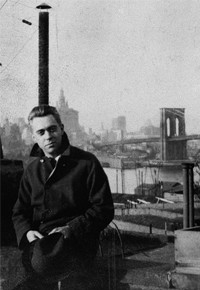
Hart Crane Papers
Hart Crane (1899-1932) was an important modernist poet, whose work (including epic poems such as The Bridge, 1930) and extensive correspondence made him an influential figure in his own time and for succeeding generations of writers. He avidly pursued sailors, but also had at least one relationship with a woman. He committed suicide at age 32 while returning to New York from Mexico by boat. His papers (1909-1937) include 25 boxes of correspondence with family, friends, and prominent literary figures, drafts and original manuscripts including handwritten corrections and annotations from his published works, scrapbooks, family and personal mementos, and drawings and a painting by Crane.
See also: the Hart Crane Project in the Columbia Oral History Collection includes six interviews with acquaintances of Crane describing their reminiscences of the poet.
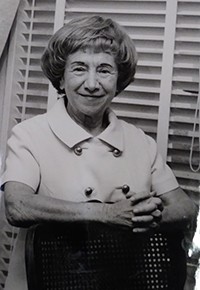
Rose Nadler Franzblau Papers
Psychologist and advice columnist Rose Nader Franzblau (1905-1979) helped to popularize Freudian theory in the American mainstream through her syndicated writings in newspapers and magazines across the country. In her widely read New York Post column “Human Relations” as well as articles in other popular publications and radio and television appearances, she addressed readers’ questions and shaped cultural attitudes about sex, relationships, marriage, and parenting. Her papers (1930-1978) include letters from readers and other correspondence, manuscripts of her published writings, subject files, audio recordings from radio appearances, and memorabilia.

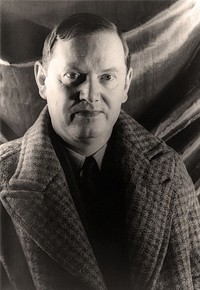
Evelyn Waugh Papers
British author Evelyn Waugh (1903-1966) penned the popular novels Decline and Fall and Brideshead Revisited, along with biographies, travel accounts, and journalistic writings. After participating in homosexual circles at Oxford and love affairs with several other young aristocratic men, Waugh married Evelyn Gardner in 1927, only to divorce her less than two years later. The collection (1927-1965) consists of one box of Waugh’s manuscripts and correspondence, including letters from his wife to John Maxse, along with a series of eight pen-and-ink drawings done by Waugh for an edition of his comic novel Black Mischief (1932), and the screenplay by Terry Southern and Christopher Isherwood for the 1965 MGM film version of his 1948 satire The Loved One.

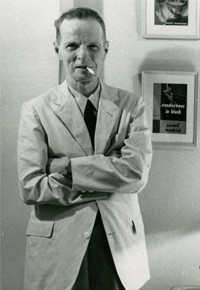
Cornell Woolrich Papers
Crime writer Cornell Woolrich (1903-1968) authored dozens of popular novels and short stories, many of which were adapted as Hollywood movies, including Alfred Hitchcock’s Rear Window. After a brief attempt at marriage to a woman failed when she discovered evidence of his numerous affairs with men, Woolrich spent the rest of his life largely as a recluse, living with his mother in cheap hotels while prolifically producing pulp suspense novels and short stories. The collection includes correspondence with William Thailing, a devoted fan of his writing, drafts of novels, plays, and short stories, and portions of an unpublished autobiography (considered by scholars to be of questionable veracity).

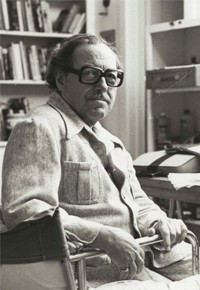
Tennessee Williams Papers
Playwright Tennessee Williams (1911-1983) composed some of the most enduring works of twentieth-century American theater. In plays such as A Streetcar Named Desire, The Glass Menagerie, Cat on a Hot Tin Roof, and Suddenly Last Summer, evocative characters grapple with sexuality and desire, fantasy and delusion, greed and violence, family relationships, and memory. The collection (1920-1983) comprises 83 boxes of material left in his Key West house at the time of his death, including correspondence with friends, relatives, boyfriends, and fellow writers; annotated manuscripts, drafts, and proofs from his writings, especially from the 1960s and 1970s; personal notebooks from the 1940s and an unpublished diary from 1979; photographs, memorabilia, programs, and other ephemera.

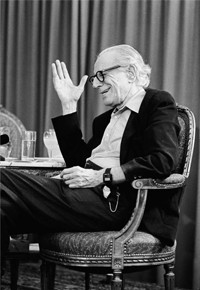
Albert Ellis Papers
Psychologist and author Albert Ellis (1913-2007) developed Rational Emotive Behavior Therapy, a key foundation for cognitive behavioral therapy, and became one of the most prominent psychological authorities in the twentieth century. His prominent work as a sexologist included collaboration with researcher Alfred Kinsey, dialogue with the early homophile movement, and publication of Sex Without Guilt (1958) and Homosexuality: Its Causes and Cure (1965). His papers (1920-2007, bulk 1965-1997) consist of correspondence, notebooks, library and research files, fiction and nonfiction manuscript drafts, notecards of citations and contacts, photographs, audiovisual materials.
For more information on the Ellis Papers, visit the Columbia University Libraries “Archiving Albert Ellis” blog.

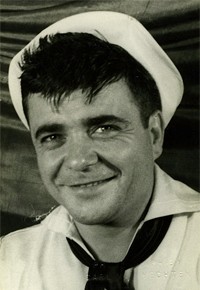
John Latouche Papers
The gay lyricist John Latouche (1914-1956), perhaps best known for musicals Cabin in the Sky (1940) and The Golden Apple (1954) and the cantata “Ballad for Americans” (1939), collaborated with many renowned Broadway, jazz, and classical composers on popular musicals, operas, and songs. The collection (1930-1960) includes his correspondence with other musical and artistic figures, personal diaries and notebooks, manuscripts and scores of musical works, photographs, and memorabilia.

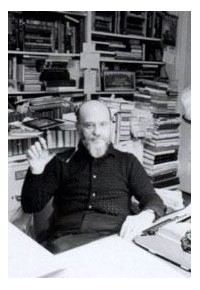
Leo Lerman Collection
As a writer and editor for Vogue, Mademoiselle, Playbill, Harper's Bazaar—and more—Leo Lerman (1914-1994) stood at the center of New York’s fashionable artistic and social circles for decades. He and the artist Gray Foy, his companion of 47 years, hosted countless parties that drew a dazzling array of celebrities and fashionistas. This extensive collection (1893-2012, bulk 1937-1994) includes his voluminous personal and professional correspondence, topical files, documents relating to his writing career, photographs, and memorabilia.

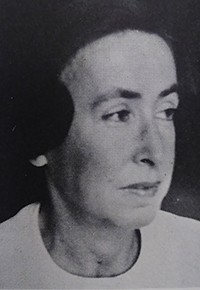
Nancy Wechsler Papers
Nancy Weschler (1916-2009) served as an attorney in the Department of Labor, President Truman's Committee on Civil Rights, and private law firms. She litigated numerous cases relating to civil liberties, libel, censorship, obscenity, contraception, and abortion, for clients ranging from Robert F. Kennedy to the Planned Parenthood Federation of America, and submitted amicus curiae briefs in pivotal cases such as Griswold v. Connecticut and Roe v. Wade. The collection (1935-2007) includes correspondence, writings, professional papers, oral history interviews she conducted, a memoir about her experiences with activism and public life, and government files about her obtained through a FOIA request.

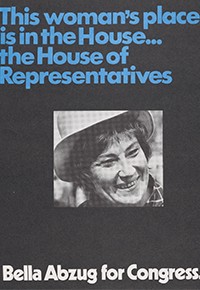
Bella Abzug Papers
Politician, lawyer, and civil rights advocate Bella Abzug (1920-1998) emerged in the 1970s as one of the most prominent voices in American feminism. As a member of the House of Representatives from New York City from 1971-1976, she co-founded the National Women’s Political Caucus, was the first co-sponsor of federal gay rights legislation, and supported the Equal Rights Amendment. Her voluminous papers (1970-1986)—over 1000 boxes—span her tenure in Congress and much of her public activism, including correspondence with constituents and a wide variety of public figures, speeches and public statements, administrative and legislative files, campaign materials, photographs, scrapbooks, audiovisual material, and more.

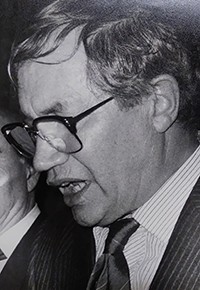
Mark Popovskii Papers
Author, editor, and researcher Mark Aleksandrovich Popovskii (b. 1922) emigrated from the Soviet Union to the United States in 1977. In addition to writing about various scientific, religious, and literary topics, he conducted a research project in the early 1980s on sexuality and love in Soviet society, including anonymous surveys of Russians about their experiences and perspectives on sex. His papers (1980-1986) include correspondence, writings, clippings, audio and video recordings, diaries, and other personal and business papers; of particular interest are survey responses, interview transcripts, and manuscripts related to his sexuality research.

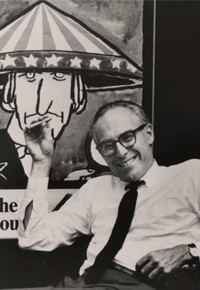
Barney Rosset Papers
Barney Rosset (1922-2012) was a prominent American publisher of avant-garde literature. As the owner, editor, and publisher of Grove Press and its influential literary magazine Evergreen Review, Rosset published key works by Genet, Kerouac, Beckett, Lawrence, Malcolm X and other writers, which often explored questions of race, sexuality, and culture. His publication of Henry Miller’s Tropic of Cancer resulted in a pivotal 1964 Supreme Court ruling on free speech, obscenity, and the First Amendment. His papers (1841-2011, bulk 1935-2011) include biographical material, Grove Press records, extensive subject files including FOIA request documents, photographs, articles, and a substantial collection of correspondence and material relating to playwright Samuel Beckett. See also: Grove Press Collection

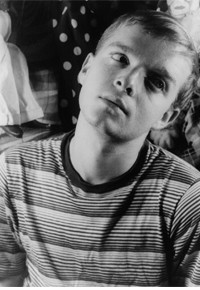
Truman Capote Ephemera Collection
Author, playwright, and screenwriter Truman Capote (1924-1984) dazzled readers with renowned works such as the novella Breakfast at Tiffany’s and the nonfiction novel In Cold Blood. In addition to his talent as a storyteller and prose stylist, his open homosexuality, flamboyant personality, and penchant for dramatic feuds contributed to his reputation as a controversial literary celebrity. The collection (1949-1988) includes copies of Capote’s books, including different editions and foreign language translations, copies of anthologies and collections that include his works, writings about Capote in a variety of books, magazines, newspapers, and posters and programs related to stage adaptations of his works.
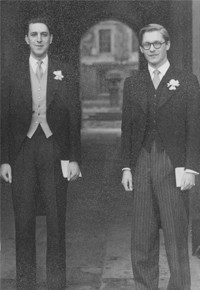
Ben Duncan and Dick Chapman Papers
Writer Ben Duncan (1927-2016) and advertising executive Dick Chapman (1930-2012) met as students at Oxford in 1951 and formed a lifelong partnership, becoming one of the first same-sex couples to register a civil partnership in the UK in 2005. While working for advertising firms on opposite sides of the Atlantic in the 1950s, they exchanged daily letters, providing remarkable detail into the social history of gay life in England and the United States, as well as reflections on literature, culture, and current events. The collection (1939-2000, bulk 1956-1957) includes miscellaneous business and personal correspondence, drafts and manuscripts for Duncan’s novels, memoirs, essays, and BBC radio scripts, and the couple’s near daily letters from 1956-1957.
To read more about Duncan, Chapman, and their letters, visit the Columbia University Libraries 2018 blog post “The Ben Duncan and Dick Chapman Papers Come Out.”

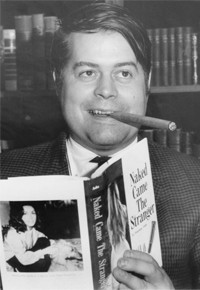
Mike McGrady Papers
Reporter Mike McGrady (1933-2012) led a notorious literary hoax in which a group of twenty-six reporters sought to capitalize on the American public’s craze for erotic literature by collaboratively authoring a salacious and deliberately poorly written “dirty book.” Published in 1969 as Naked Came the Stranger under the pseudonym Penelope Ashe, the book became a bestseller after the hoax was exposed, prompting widespread discussion about the role of sex in literature. McGrady’s papers (1966-1970) include the drafts of the individual authors’ submissions, newspaper clippings of press coverage on the hoax, and correspondence with the authors as well as from friends, readers, and the public in reaction to the controversy.

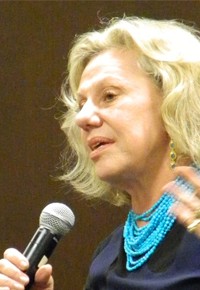
Erica Jong Papers
Author and educator Erica Jong (b. 1942) has written novels, poetry, and nonfiction addressing sexuality, gender, and feminism. Her controversial 1973 novel Fear of Flying, with its frank depiction of a woman’s experience of sexual frustration, fantasy, and infidelity, became an influential literary expression of second-wave feminism. The collection (1955-2018; bulk 1965-2004) includes drafts of Jong's writings, research files, correspondence, and personal materials.

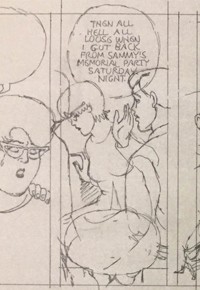
Howard Cruse Papers
Cartoonist and illustrator Howard Cruse (b. 1944) is one of the earliest and most influential openly gay comic artists in the United States. His work—some of the first in the medium to seriously and realistically portray gay life, politics, and AIDS—includes the long-running strips “Wendel” and “Barefootz,” editing “Gay Comix,” and the graphic novel Stuck Rubber Baby. The papers (1940s-2015) range from his adolescence in Alabama through his most recent work, including correspondence, business records, project proposals, promotional materials, teaching files, photographs, notes and drafts, ink sketches, and finished artwork.

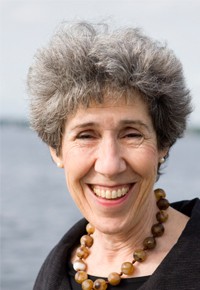
Laura Engelstein Collection of Research Note Cards on Social and Cultural History of Late Imperial Russia
Historian Laura Engelstein (b. 1946) has written extensively on late imperial Russia, with an emphasis on gender, sexuality, religion, medicine, law, and social and cultural history. This collection (bulk 1982-1992) includes six file boxes of note cards containing her research for her 1992 book The Keys to Happiness: Sex and the Search for Modernity in Fin-de-Siecle Russia; topics include prostitution, venereal disease, abortion, and representations of sex in legal codes, medical discourses, and the popular press.

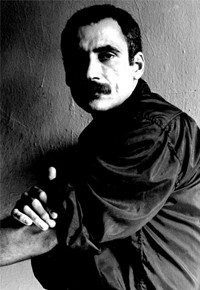
Manuel Ramos Otero Papers
The prominent Puerto Rican writer Manuel Ramos Otero (1948-1990) wrote innovative novels, short stories, poems, and essays critiquing colonialism and exploring sexuality and gay identity. He also taught and lectured widely on Caribbean literature and founded a small press to help promote Latinx writers before his death from AIDS in 1990. The collection (c. 1950-2014) includes correspondence, manuscripts for published and unpublished works, a diary, clippings, audiovisual material, and photographs.


Rick X. Shur Papers
Teacher and media activist Rick X. Shur (1953-2016) participated in gay student and alumni organizing at Columbia University, mentoring campus activists and helping to found Gay Alums of Columbia. His popular Manhattan-based public access TV program, “The Closet Case Show” (1984-1994), documented LGBT life in the city during the height of the AIDS epidemic, including interviews with cultural figures, political discussion, satire, and safer sex “edurotica.” The collection consists primarily of videotapes of his show and letters from viewers.


Sarah Allen Reed Papers
Southern trans artist Sarah Allen Reed (b. 1992) draws evocative comics influenced by early underground cartoonists, Art Deco and Art Nouveau movements, Surrealism, and occult and esoteric imagery. Her work frequently centers on highly personal and autobiographical themes, including gender identity, mental health, and poverty. This collection includes Reed’s original art, process materials, prints, books, and journals. Note: this collection is currently unprocessed.